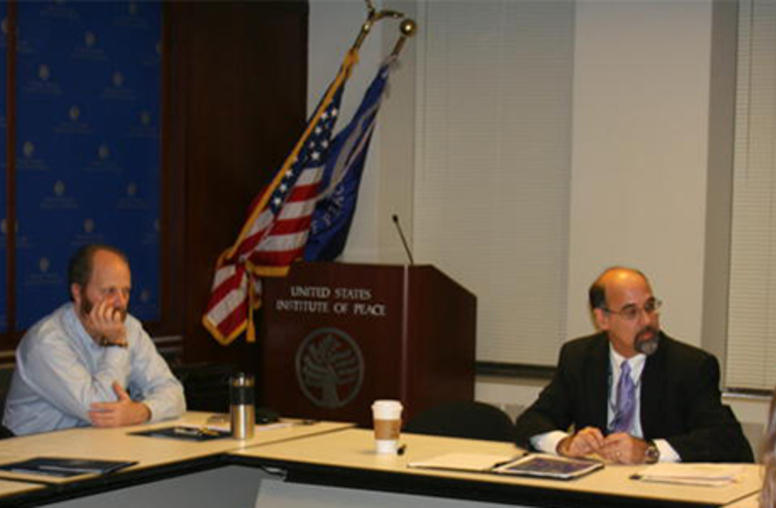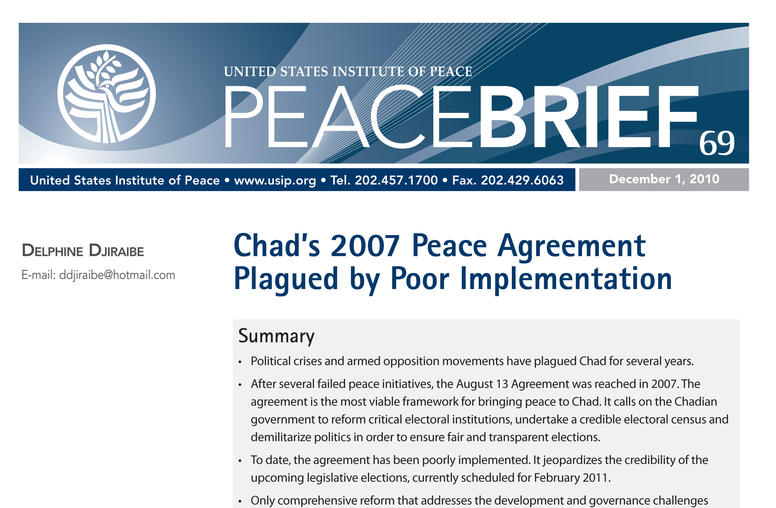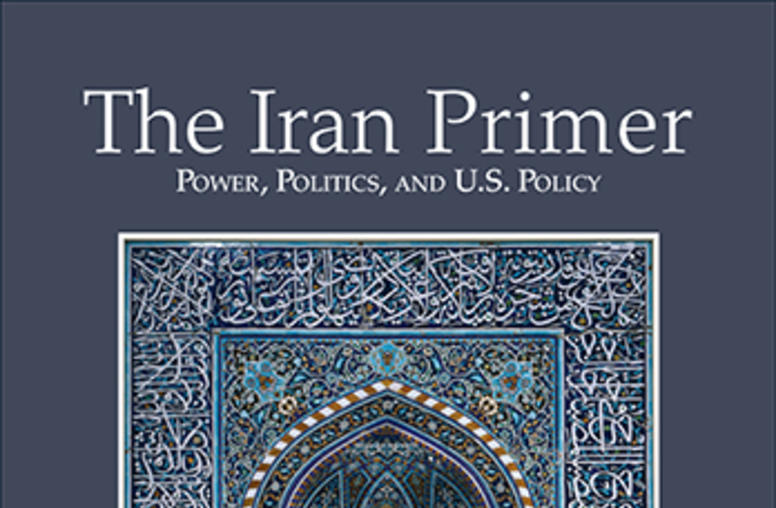Publications
Articles, publications, books, tools and multimedia features from the U.S. Institute of Peace provide the latest news, analysis, research findings, practitioner guides and reports, all related to the conflict zones and issues that are at the center of the Institute’s work to prevent and reduce violent conflict.

Students Learn Conflict Resolution Basics at USIP
On November 18, students from the private Montgomery School in Chester Springs, Pa., participated USIP's educational outreach program.

Chad’s 2007 Peace Agreement Plagued by Poor Implementation
Summary Political crises and armed opposition movements have plagued Chad for several years. After several failed peace initiatives, the August 13 Agreement was reached in 2007. The agreement is the most viable framework for bringing peace to Chad. It calls on the Chadian government to reform critical electoral institutions, undertake a credible electoral census and demilitarize politics in order to ensure fair and transparent elections. To date, the agreement has been poorly implem...
Unfinished Business
Program Officer Sean Kane co-authored the Saban Center at Brookings' report "Unfinished Business: An American Strategy for Iraq Moving Forward" that looks at American strategy in Iraq through the lenses of politics, security, government, and economics.

The Iran Primer (Book)
The Iran Primer offers a comprehensive but concise overview of Iran’s politics, economy, military, foreign policy, and nuclear program. This volume includes top-level briefings by fifty of the world's leading experts on Iran—both Western and Middle East—from some 20 foreign policy think tanks, eight universities, and six U.S. administrations.

Conducting Track II Peace Making
In the conflict resolution realm, “track II” peacemaking or diplomacy has become increasingly common, complementing the more formal track I peacemaking efforts in myriad ways and at various points throughout a peace process. This volume presents track II intervention as a series of steps that guide peacemakers in coordinating track II efforts to maximize their positive impacts. This handbook is part of the Peacemaker’s Toolkit series, published by the United States Institute of Peace.
Ambassador Dennis Ross Speaks About Iran as USIP and the Wilson Center Release "The Iran Primer"
Ambassador Dennis Ross, special assistant to the President and senior director for the Central Region including the Middle East, the Gulf, Afghanistan, Pakistan and South Asia, addressed USIP on the day it rolled out "The Iran Primer: Power, Politics and U.S. Policy," edited by USIP-Woodrow Wilson Center Fellow Robin Wright. The speech took place just a week before multilateral talks with Iran begin.

The Go-Between
This volume explores international mediation through the lens of Ambassador Jan Eliasson, an international go-between with a remarkable track record. The authors draw lessons for the peacemaking process from their examination of how Eliasson entered, prepared, pursued, and finally ended his mediation efforts.
Veterans’ Day Concert Honors Key USIP Founder
On Wednesday, November 10, 2010, the fourth and fifth graders of Matsunaga Elementary School, located in a Maryland suburb of Washington, D.C., treated nearly 1,000 guests to their tenth annual Veterans’ Day concert.
On the Issues: Burma
Lex Rieffel, contributor to USIP’s International Network for Economics and Conflict and Nonresident Senior Fellow, The Brookings Institution and Raymond Gilpin, Associate Vice President, Sustainable Economies, USIP discuss the release of Aung San Suu Kyi from house arrest in Myanmar/Burma.

Countering Radicalization in America
In response to the recent surge in the number of American Muslims involved in terrorist activities, several agencies in the U.S. government have begun devising a comprehensive counterradicalization strategy. In doing so, they are following the lead of certain European countries that have invested significant human, financial, and political capital in counterradicalization programs.